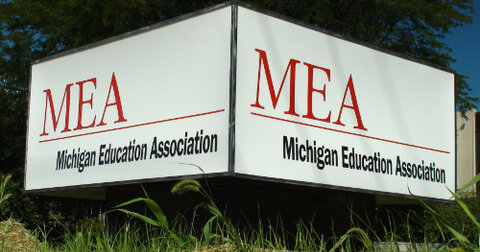House Ready To Move Bills Prohibiting Automatic Union PAC Deductions
Legislation to prohibit public school districts from deducting contributions to political action committees (PACs) from employee paychecks appears to be on a fast track in the Michigan House.
House Bills 5085 and 5086 are scheduled to be taken up by the House Redistricting and Elections Committee on Dec. 6. It seems likely the measures will receive committee approval that day and be sent to the House floor. The apparent goal is to have the legislation passed by the House and sent to the Senate before the upcoming end-of-the-year holiday break.
“We think this is good policy,” said House Redistricting and Elections Committee Chair Pete Lund, R-Shelby Township, “The state should not be doing the collecting when people want to pay into PACs.”
Rep. Mike Shirkey, R-Clark Lake, sponsor of HB 5085, told Capitol Confidential the legislation is part of the ongoing effort to prevent government from mixing with partisan political activity.
“Government assets should not be used to provide services for political purposes,” Shirkey said. “These are two more bills on a long list that would separate government from this sort of involvement.”
The second bill in the package, House Bill, 5086, is sponsored by Rep. Paul Opsommer, R-DeWitt. It includes language to allow employees to sue districts that violate the law.
House Education Committee member Rep. Deb Shaughnessy, R-Charlotte, said the bills would address a situation that should have been corrected long ago.
“I applaud Reps. Shirkey and Opsommer for taking the lead on this important legislation that will ensure the practice of public employers using public resources to set up payroll deductions to collect contributions to political special interest groups never happens again,” Shaughnessy said. “This legislation is long overdue and is comprehensive in that it includes all public employee groups, not just certain ones. I look forward to doing everything I can to make sure this legislation passes the House and Senate and is signed by the Governor.
The push to move the bills comes near the end of a year in which the state Supreme Court made two completely opposite rulings regarding PAC deductions from school employee paychecks.
Specifically at issue were political contributions being deducted from employee paychecks by the Gull Lake school district. These deductions were for the Michigan Education Association political action committee.
In late December 2010, just days before the end of some of the justices' terms, the state Supreme Court ruled that a school district could administer a payroll deduction system for purposes of remitting employee contributions to MEAPAC. Part of the argument for this ruling was that schools and the union could agree to the deductions as part of their collective bargaining agreements.
The case is Michigan Educ. Ass’n v. Secretary of State, No. 137451.
Six months later this ruling was reversed. The current Supreme Court, which had been seated in January after undergoing changes in the 2010 election, granted a motion for a rehearing in the case. On June 30, the high court, in a 4-3 decision, ruled that deductions for union PACs are a violation of the Michigan Campaign Finance Act.
The court’s majority concluded that administrating a payroll deduction that sends contributions to a PAC constitutes a “contribution,” under the state's campaign laws.
Explaining, in part, the court said such deductions are illegal: “because public resources are being used to advance the political objectives of the committee” and are to be considered an expenditure “because public services and facilities in assistance of these same political objectives are being provided.”
In light of the two opposite rulings within less than seven months, House Bills 5085 and 5086 were introduced to lock the court's current interpretation into statute.
“This is just to codify the court's ruling for the future,” Rep. Shirkey explained.
Michigan Capitol Confidential is the news source produced by the Mackinac Center for Public Policy. Michigan Capitol Confidential reports with a free-market news perspective.


